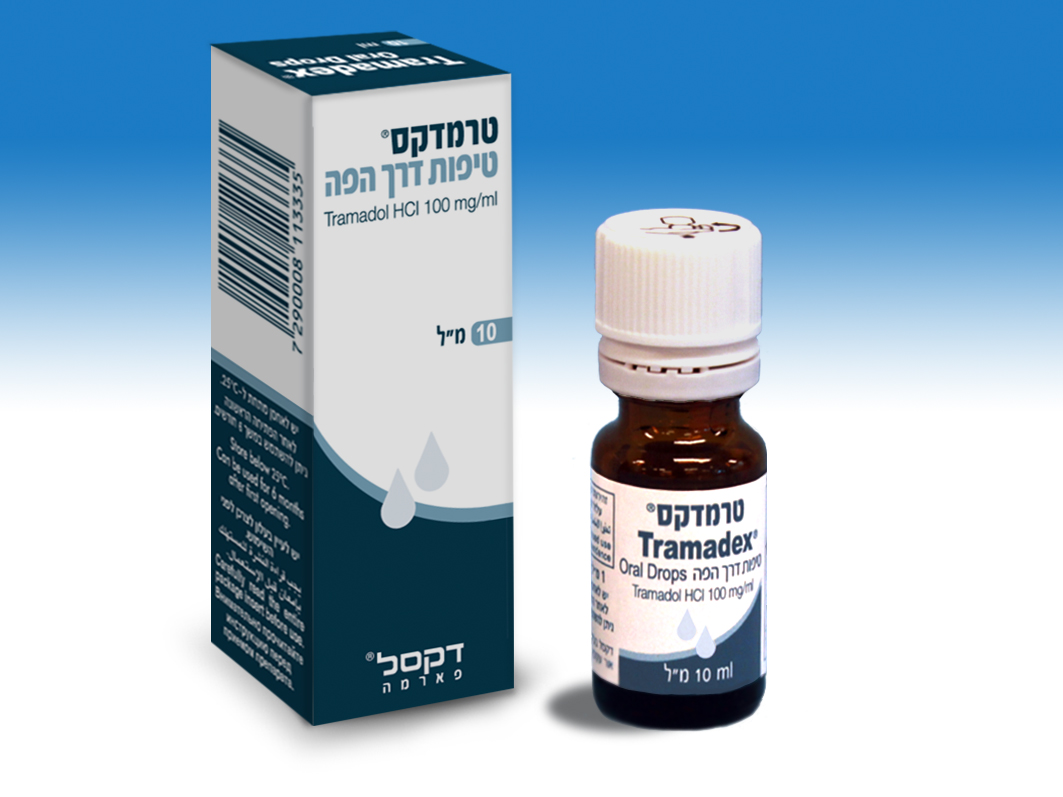Quest for the right Drug

טרמדקס טיפות TRAMADEX DROPS (TRAMADOL HYDROCHLORIDE)
תרופה במרשם
תרופה בסל
נרקוטיקה
ציטוטוקסיקה
צורת מתן:
פומי : PER OS
צורת מינון:
טיפות : DROPS
עלון לרופא
מינוניםPosology התוויות
Indications תופעות לוואי
Adverse reactions התוויות נגד
Contraindications אינטראקציות
Interactions מינון יתר
Overdose הריון/הנקה
Pregnancy & Lactation אוכלוסיות מיוחדות
Special populations תכונות פרמקולוגיות
Pharmacological properties מידע רוקחי
Pharmaceutical particulars אזהרת שימוש
Special Warning עלון לרופא
Physicians Leaflet
Adverse reactions : תופעות לוואי
4.8 Undesirable effects The most commonly reported adverse reactions are nausea and dizziness, both occurring in more than 10% of patients. The frequencies are defined as follows: Very common: ≥1/10 Common: ≥1/100, <1/10 Uncommon: ≥1/1,000, <1/100 Rare: ≥1/10,000, <1/1,000 Very rare: <1/10,000 Not known: cannot be estimated from the available data Cardiac disorders: Uncommon: cardiovascular regulation (palpitation, tachycardia). These adverse reactions may occur especially on intravenous administration and in patients who are physically stressed. Rare: bradycardia Investigations: Rare: increase in blood pressure Vascular disorders: Uncommon: cardiovascular regulation (postural hypotension or cardiovascular collapse). These adverse reactions may occur especially on intravenous administration and in patients who are physically stressed. Metabolism and nutrition disorders: Rare: changes in appetite Respiratory, thoracic and mediastinal disorders: Rare: respiratory depression, dyspnea If the recommended doses are considerably exceeded and other centrally depressant substances are administered concomitantly (see section 4.5), respiratory depression may occur. Worsening of asthma has been reported, though a causal relationship has not been established. Not known: hiccups Nervous system disorders: Very common: dizziness Common: headache, somnolence Rare: paraesthesia, tremor, epileptiform convulsions, involuntary muscle contractions, abnormal coordination, syncope, speech disorders. Not known: Serotonin syndrome Convulsions occurred mainly after administration of high doses of tramadol or after concomitant treatment with medicinal products which can lower the seizure threshold (see sections 4.4 and 4.5). Psychiatric disorders: Rare: hallucinations, confusion, sleep disturbance, delirium, anxiety and nightmares. Psychic adverse reactions may occur following administration of tramadol which vary individually in intensity and nature (depending on personality and duration of treatment). These include changes in mood (usually elation, occasionally dysphoria), changes in activity (usually suppression, occasionally increase) and changes in cognitive and sensorial capacity (e.g. decision behaviour, perception disorders). Frequency unknown: drug dependence (see section 4.4) Eye disorders: Rare: miosis, mydriasis, blurred vision Gastrointestinal disorders: Very common: nausea Common: vomiting, constipation, dry mouth Uncommon: retching; gastrointestinal discomfort (a feeling of pressure in the stomach, bloating), diarrhoea Skin and subcutaneous tissue disorders: Common: hyperhidrosis Uncommon: dermal reactions (e.g. pruritus, rash, urticaria) Musculoskeletal and connective tissue disorders: Rare: motorial weakness Hepatobiliary disorders: In a few isolated cases an increase in liver enzyme values has been reported in a temporal connection with the therapeutic use of tramadol. Renal and urinary disorders: Rare: micturition disorders (dysuria and urinary retention) Immune system disorders: Rare: allergic reactions (e.g. dyspnoea, bronchospasm, wheezing, angioneurotic oedema) and anaphylaxis Metabolism and nutrition disorders: Not known: hypoglycaemia General disorders and administration site conditions: Common: fatigue Uncommon: drug withdrawal syndrome. Symptoms of drug withdrawal syndrome, similar to those occurring during opiate withdrawal, may occur as follows: agitation, anxiety, nervousness, insomnia, hyperkinesia, tremor and gastrointestinal symptoms. Other symptoms that have very rarely been seen with tramadol discontinuation include: panic attacks, severe anxiety, hallucinations, paraesthesias, tinnitus and unusual CNS symptoms (i.e. confusion, delusions, depersonalisation, derealisation, paranoia). Reporting of suspected adverse reactions Reporting suspected adverse reactions after authorisation of the medicinal product is important. It allows continued monitoring of the benefit/risk balance of the medicinal product. Any suspected adverse events should be reported to the Ministry of Health according to the National Regulation by using an online form https://sideeffects.health.gov.il

שימוש לפי פנקס קופ''ח כללית 1994
לא צוין
תאריך הכללה מקורי בסל
01/01/2000
הגבלות
תרופה מוגבלת לרישום ע'י רופא מומחה או הגבלה אחרת
מידע נוסף
